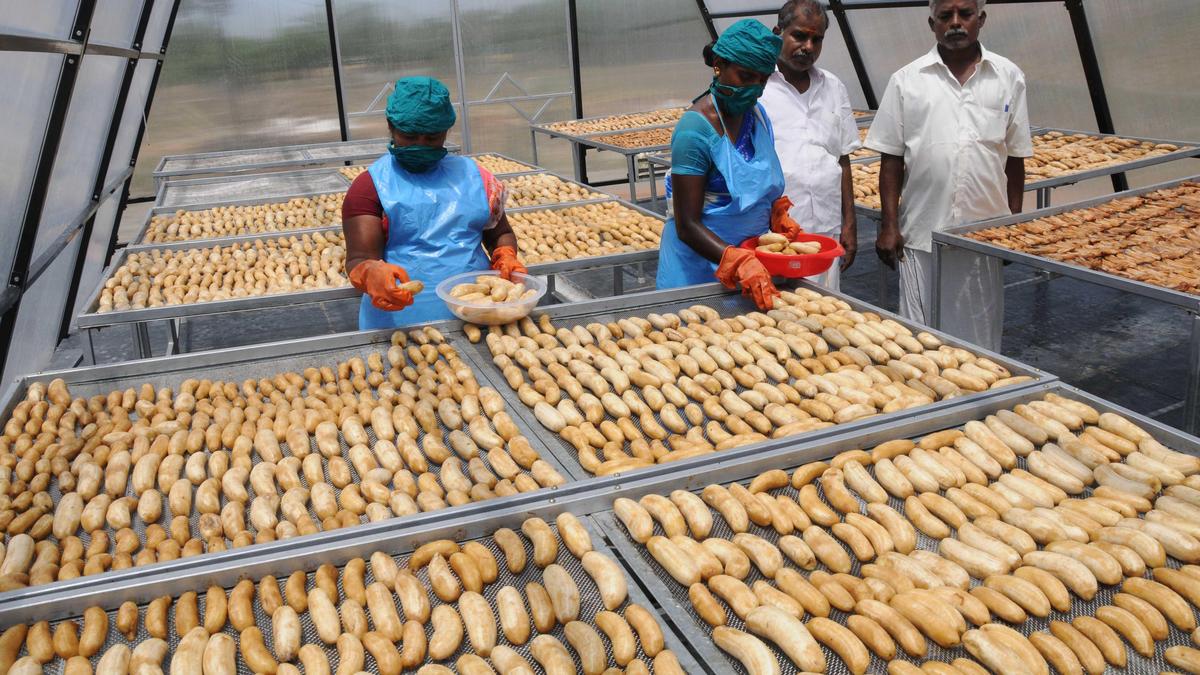Copyright thehindu

Although over 40 products have been manufactured with value addition to banana, a major crop in the Tiruchi district, only 10 or so have become economically feasible in recent years, making it imperative to diversify the process, R. Selvarajan, director, ICAR-National Research Centre for Banana (NRCB), has said. “We have given 250 licences for manufacturing banana stem juice to agri-tech entrepreneurs in Tamil Nadu, Karnataka, and Kerala. For a fee of ₹25,000, farmers are trained to produce and market the product under our mentorship. Similarly, banana fibre extraction, which has a licence fee of ₹1 lakh, is a highly profitable enterprise if done in the correct manner. Many farmers are unaware of the potential of the banana’s circular economy,” Mr. Selvarajan told The Hindu. Of late, companies have been coming up with products such as noodles and pasta made with millet flour, banana blossom pickles, cookies, energy malt drinks, and so on. This year, the export market for raw banana flour has boomed in West Asian and European countries, said Mr. Selvarajan. Additionally, NRCB has issue licence to at least 10 farmers specialising in ripe banana powder that can be used as a natural sweetener or sugar substitute. “To prolong the shelf life of the banana from three days to several months, we are using solar dehydrators and natural preservatives such as honey and ghee to create our products. Value-added products help banana farmers to monetise their crop surplus instead of destroying it. As awareness about banana’s medicinal benefits goes up, there will be more takers for value-added products,” said V. A. Kalyanasundaram from the marketing department of Tamil Nadu Banana Producer Company Ltd., an umbrella organisation of the Thottiyam Banana Producer Group (TBPC). With a membership of over 1,000 farmers, TBPC sells at least 15 value-added banana products under the ‘Madhur Fruits’ brand. “Every part of the banana plant has a commercial value, which is useful for small and marginal farmers. We are trying to encourage clusters of farmers to invest in technology and training to keep their costs low. Though technology is readily available, only 70% of farmers who use it are able to sustain their production,” said Mr. Selvarajan. In the coming months, NRCB is planning to open a web portal to sell the products of their licensees online. “We want to show banana growers that if done right, their profits from value addition can match or exceed their agricultural income,” he said.



